These delicious Kokosbusserl - Austrian Coconut Meringue Cookies have just 4 ingredients for light and fluffy meringues with desiccated coconut strewn throughout for a perfect gluten free Holiday recipe.
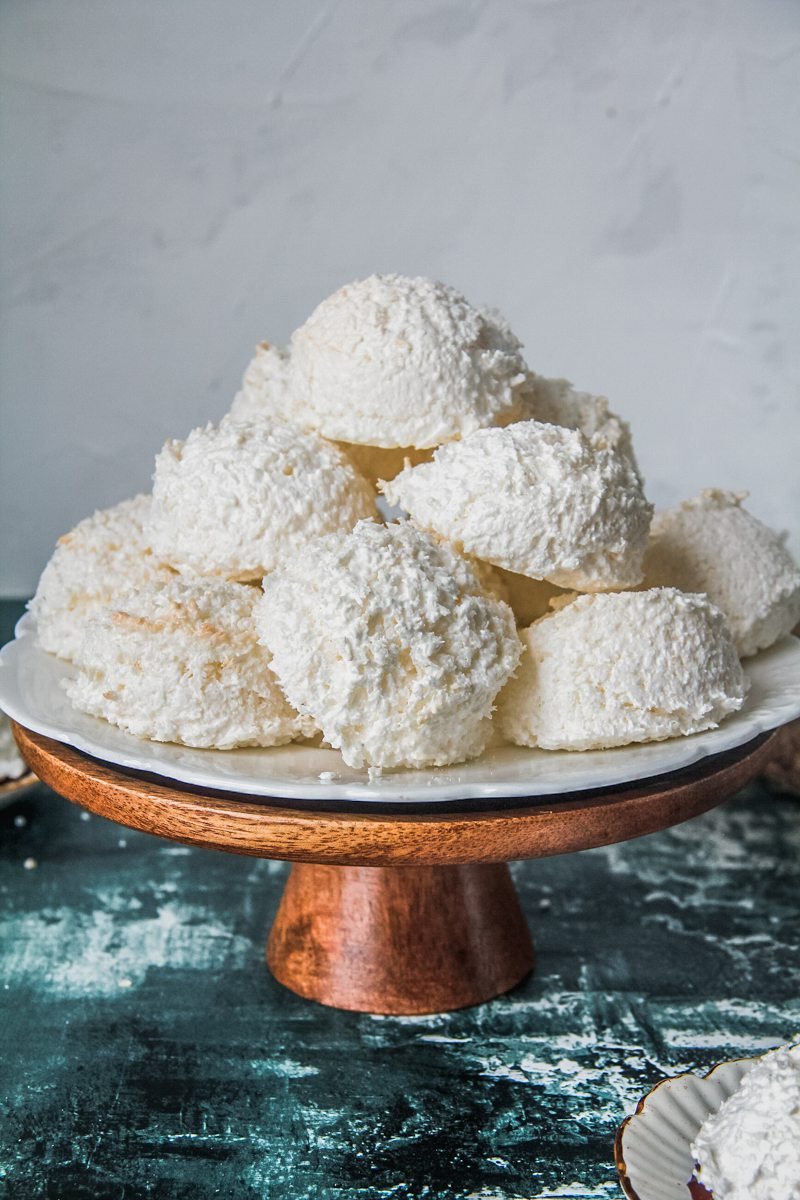
Table of Contents
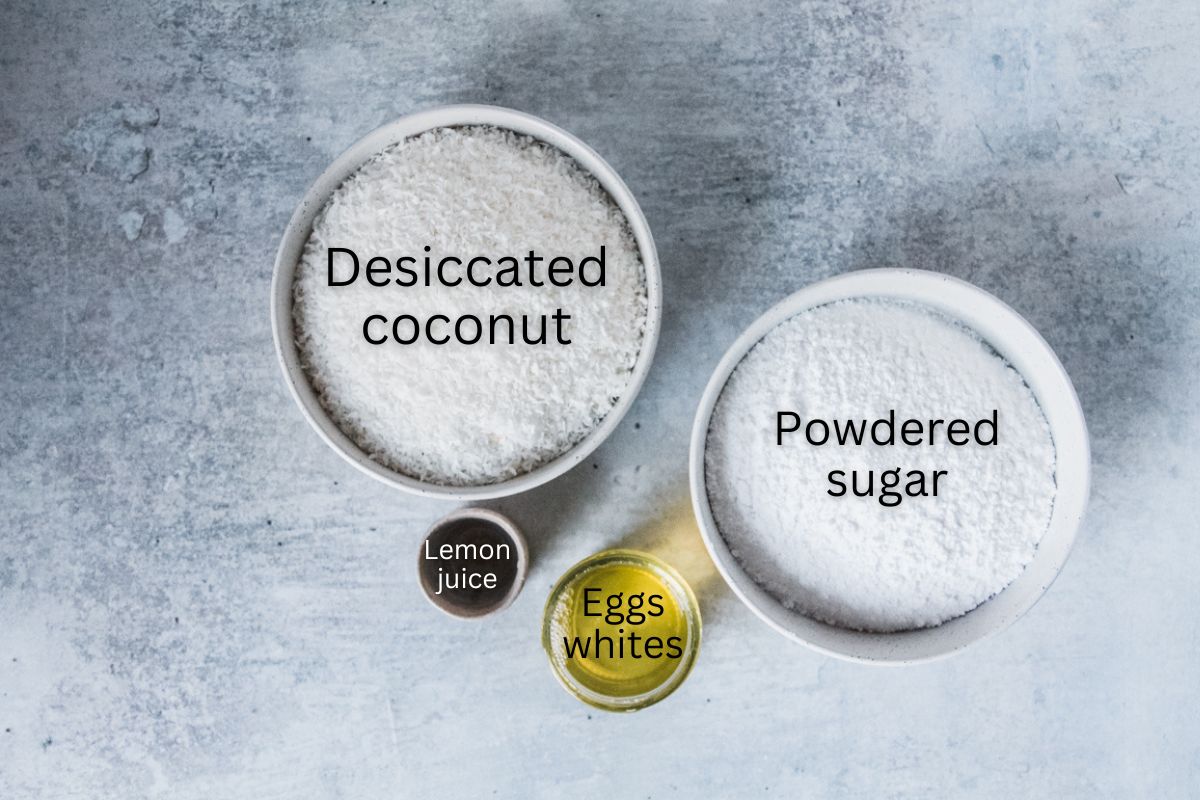
Ingredients and substitutions for Coconut Meringue Cookies
- Egg whites: The room temperature egg whites allow more air to be introduced and create our meringues, all fluffy and white!
- Sugar: That sugar doesn't just sweeten the meringue, but helps stabilize it's shape when whipped and baked. Nice and fine icing sugar dissolves into our meringue perfectly without adding additional flavor.
- Lemon juice: The lemon juice helps to stabilize the meringue, however, this can be substituted with cream of tartar.
- Desiccated coconut: Thanks to it’s fine shredded texture, desiccated coconut is the best choice to use here which sticks to the meringue best giving a nice fluffy texture to our biscuits. It is not recommended to completely substitute the cookies with shredded or flaked coconut as the result will likely be quite different.
See recipe card for quantities.
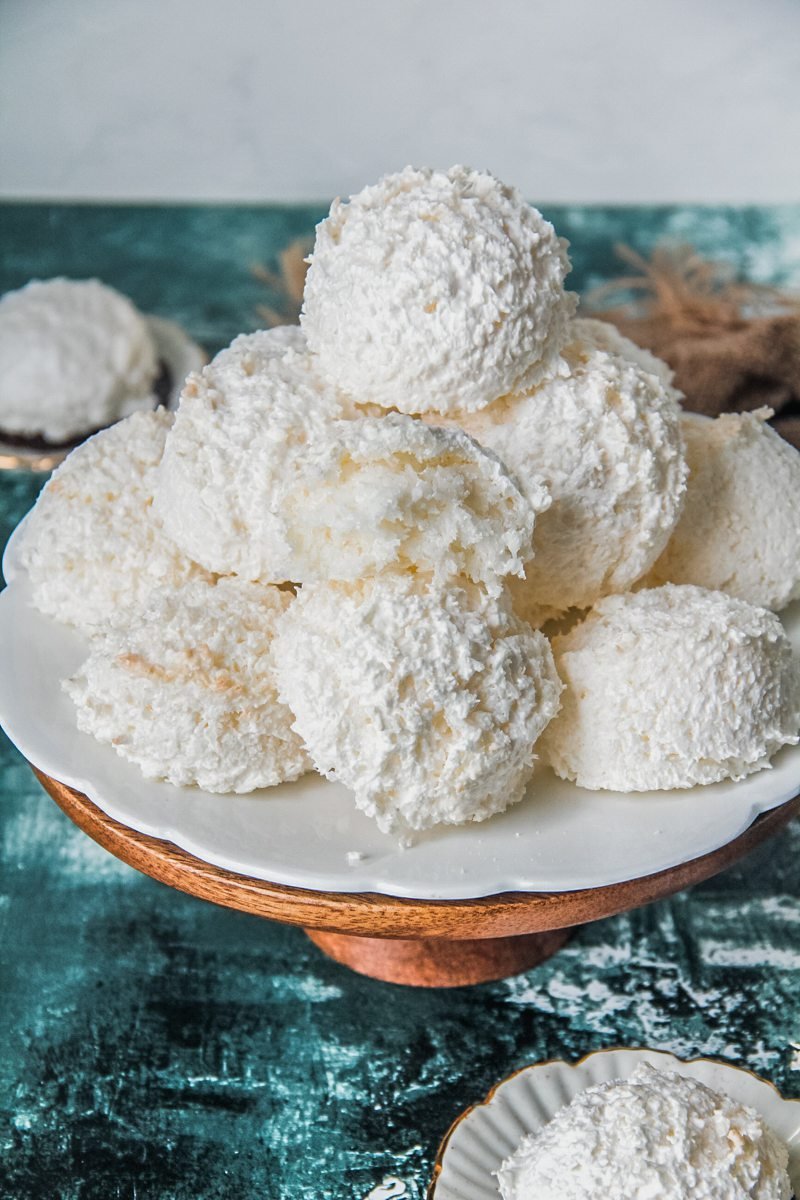
How to make Coconut Meringue Cookies:
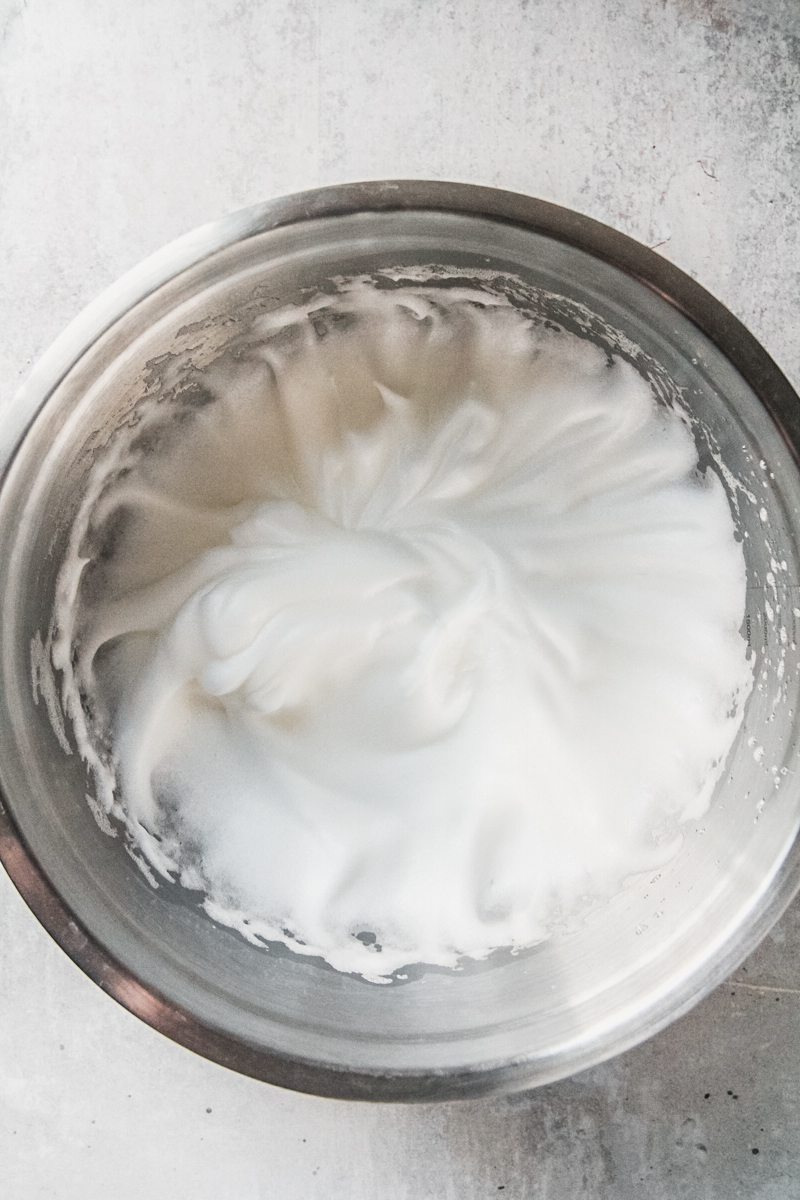
Step 1: Whip egg whites: Beat until stiff.
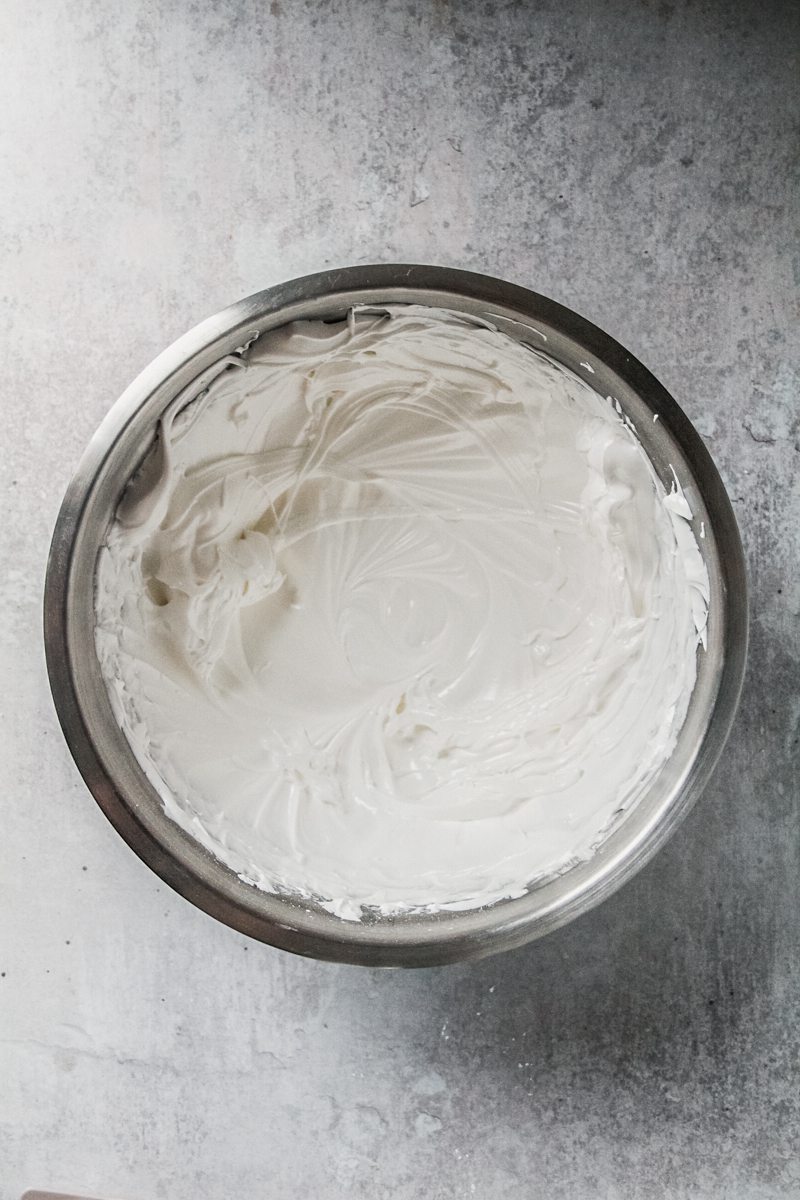
Step 2: Spoonful of sugar: Toss tablespoonful of sugar and beat until combined. Repeat until it has been fully incorporated.
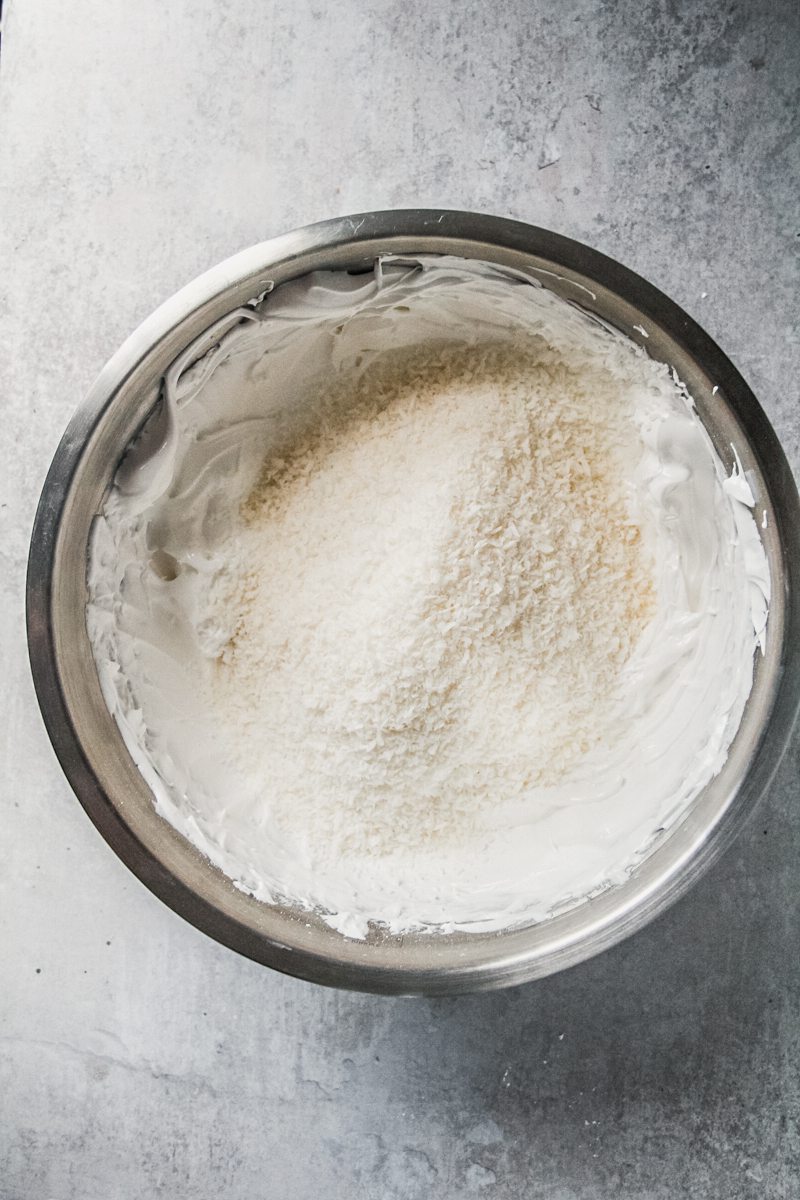
Step 3: Lemon juice: Add in your lemon juice and beat to combine fully.
Step 4: Coconut: Toss in your desiccated coconut and fold.
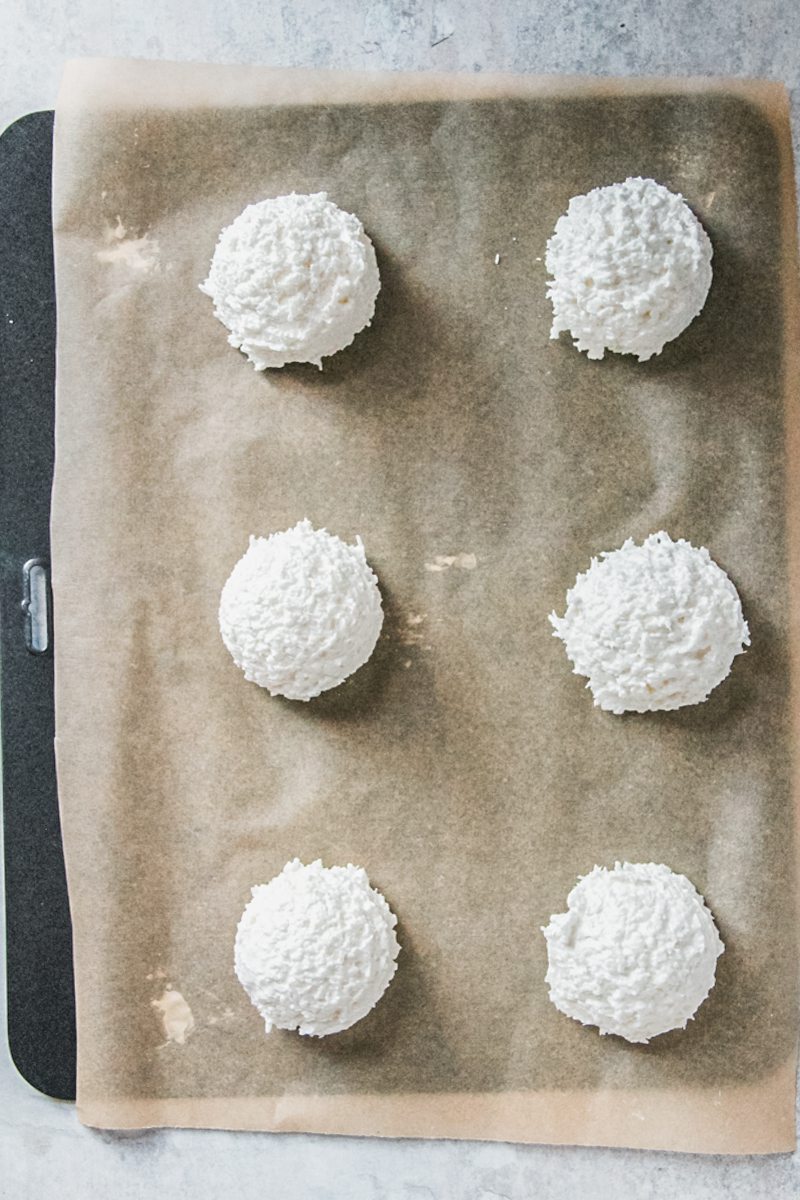
Step 5: Scoop: Place a portion of the meringue onto your baking tray.
Step 6: Bake: Until the cookies look matt and beginning to go golden on the edges.
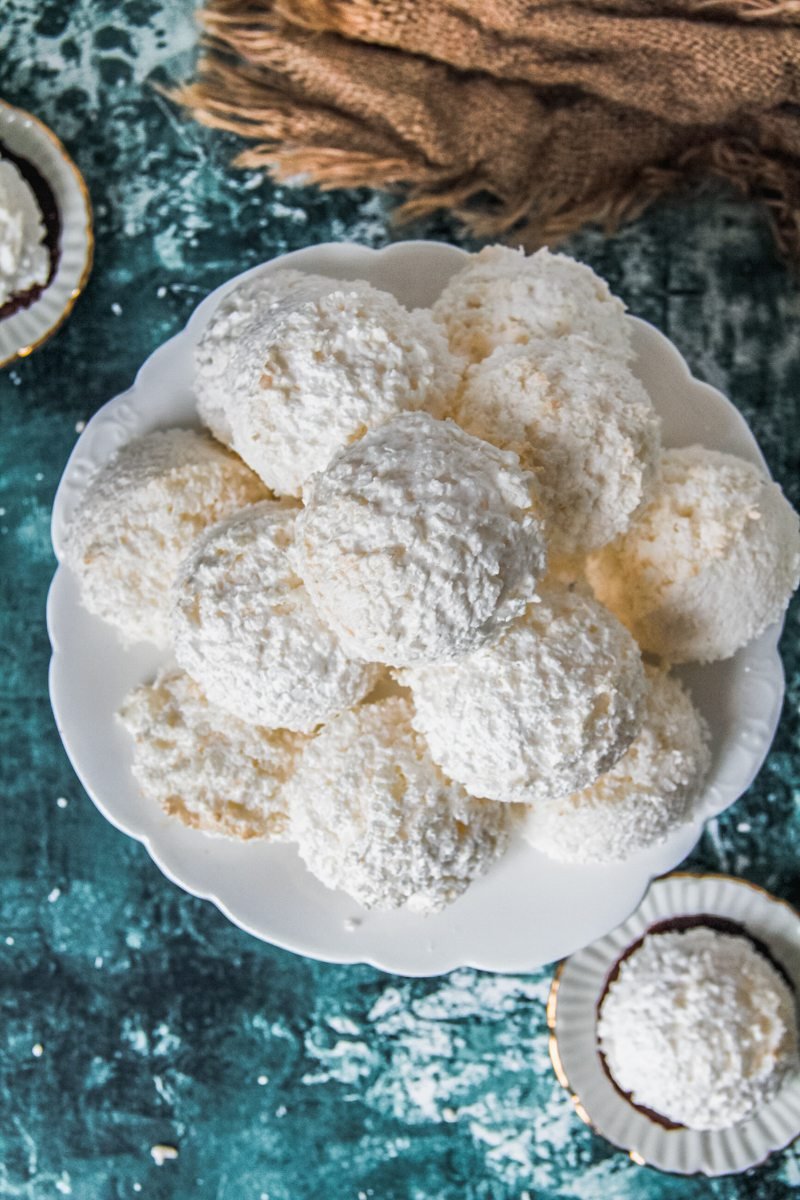
Step 7: Serve up: Serve as is or dip the bases into melty chocolate.
Step 8: Enjoy: Dig in!
FAQ's for the best Coconut Meringue Cookies
Yes! Room temperature egg whites absorb air more quickly to develop a nice and stable foam - though to really stabilize that foam we’ll need an acidic element (think: lemon juice or cream of tartar (the vinegar we use here)).
A chewy meringue cookie is the result of a shorter baking time. When you bake whipped egg whites at a low temperature for a long time you end up with crispy or dried exterior and, depending on baking time, chewy interior. When it comes to these meringue cookies, they do not bake long enough to fully dry out so the result is rather chewy, particularly with the cornflakes becoming a slightly chewy or soft in texture when coated in the meringue.
The best result in a stable but volumized meringue is to whip it at a low, but medium speed of around 3 (depending on your beaters), this will result in introducing enough air to expand the egg whites without over whipping when you begin to introduce your sugar.
Yes you can! Over whipping egg whites can result in your meringue collapsing or weeping beads of sugar once baked. The best way to avoid over beating is to ensure you beat at a steady speed and allow at least 20-30 seconds of beating time for the sugar to dissolve between adding more and try not to beat for longer than 15 minutes (this is around the break point, I’ve noticed). Unfortunately, you cannot repair over whipped meringue, though, dependent on how over whipped they are, you could make an egg white based recipe such as macaroon’s or even a baked Alaska.
The length of time depends on if you’re introducing the sugar when you begin beating the egg whites or if you beat the egg whites to soft peaks and then begin adding the sugar in stages, allow at least 20-30 seconds for the sugar to dissolve before adding more. You don’t want to beat the meringue for longer than 15 minutes as this the meringue will begin to be over whipped.
To add a twist or sweeten these up, you can or even should either dip the bottoms of the meringues into melted chocolate or drizzle a swirly swirl of melted chocolate on top.
Yes you can! These are best served within 3 days of being made, though you can freeze them for up to 1 month.
More Holiday cookies you'll love
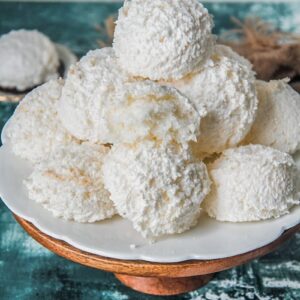
Coconut Meringue Cookies (Kokosbusserl)
Ingredients
- 225 grams / 6 large egg whites room temperature
- 265 grams / 2 ⅓ cups confectioner’s/icing sugar sifted
- 5 grams / 1 teaspoon lemon juice
- 300 grams / 3 ⅓ cups desiccated coconut
Instructions
- Preheat your oven to 160C/320F and line a baking tray with greaseproof paper.
- Place your egg whites into a large clean and dry bowl and beat until stiff.
- Toss in a heaped tablespoonful of your sugar and beat until combined.
- Repeat, adding in your sugar until it has been fully incorporated.
- Add in your lemon juice and beat to combine fully.
- Toss in your desiccated coconut and fold until well combined.
- Scoop up a tablespoon portion of the meringue mixture and invert onto your baking tray.
- Place onto the tray, ensuring there is 1 ½ inches between each cookie.
- Bake for 15 minutes, until the cookies look matt in appearance and beginning to go golden on the edges.
- Allow to sit on your baking tray for 3 minutes before placing on a cooling rack.
- Serve up as is or dip the bases of your meringue cookies into melty chocolate.
- Dig in!
Video
Notes
- Egg whites: The room temperature egg whites allow more air to be introduced and create our meringues, all fluffy and white!
- Sugar: That sugar doesn't just sweeten the meringue, but helps stabilize it's shape when whipped and baked. Nice and fine icing sugar dissolves into our meringue perfectly without adding additional flavor.
- Desiccated coconut: Thanks to it’s fine shredded texture, desiccated coconut is the best choice to use here which sticks to the meringue best giving a nice fluffy texture to our biscuits. It is not recommended to completely substitute the cookies with shredded or flaked coconut as the result will likely be quite different.
- Ice Cream Scoop: The scoop used here creates large cookies with a diameter of 6 centimeters / 2.36 inches.
- Should the cookies be chewy: A chewy meringue cookie is the result of a shorter baking time. When you bake whipped egg whites at a low temperature for a long time you end up with crispy or dried exterior and, depending on baking time, chewy interior. When it comes to these meringue cookies, they do not bake long enough to fully dry out so the result is rather chewy, particularly with the cornflakes becoming a slightly chewy or soft in texture when coated in the meringue.
- You can beat meringue too long: Over whipping egg whites can result in your meringue collapsing or weeping beads of sugar once baked. The best way to avoid over beating is to ensure you beat at a steady speed and allow at least 20-30 seconds of beating time for the sugar to dissolve between adding more and try not to beat for longer than 15 minutes (this is around the break point, I’ve noticed). Unfortunately, you cannot repair over whipped meringue, though, dependent on how over whipped they are, you could make an egg white based recipe such as macaroon’s or even a baked Alaska.
Nutrition
Subscribe to receive a free weekly newsletter using seasonal produce as well as exclusive content!
Made it and loved it?
If you have made this recipe, it would mean so much to leave a review below to help more people find this.


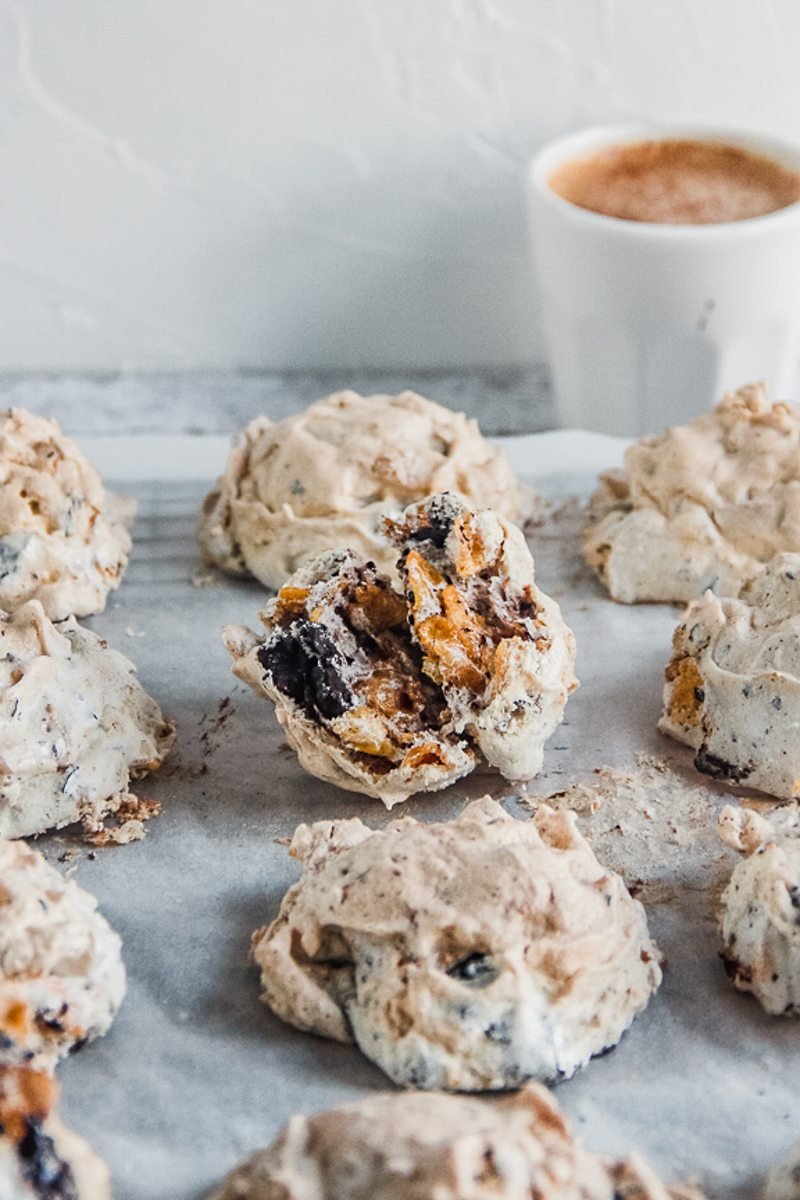

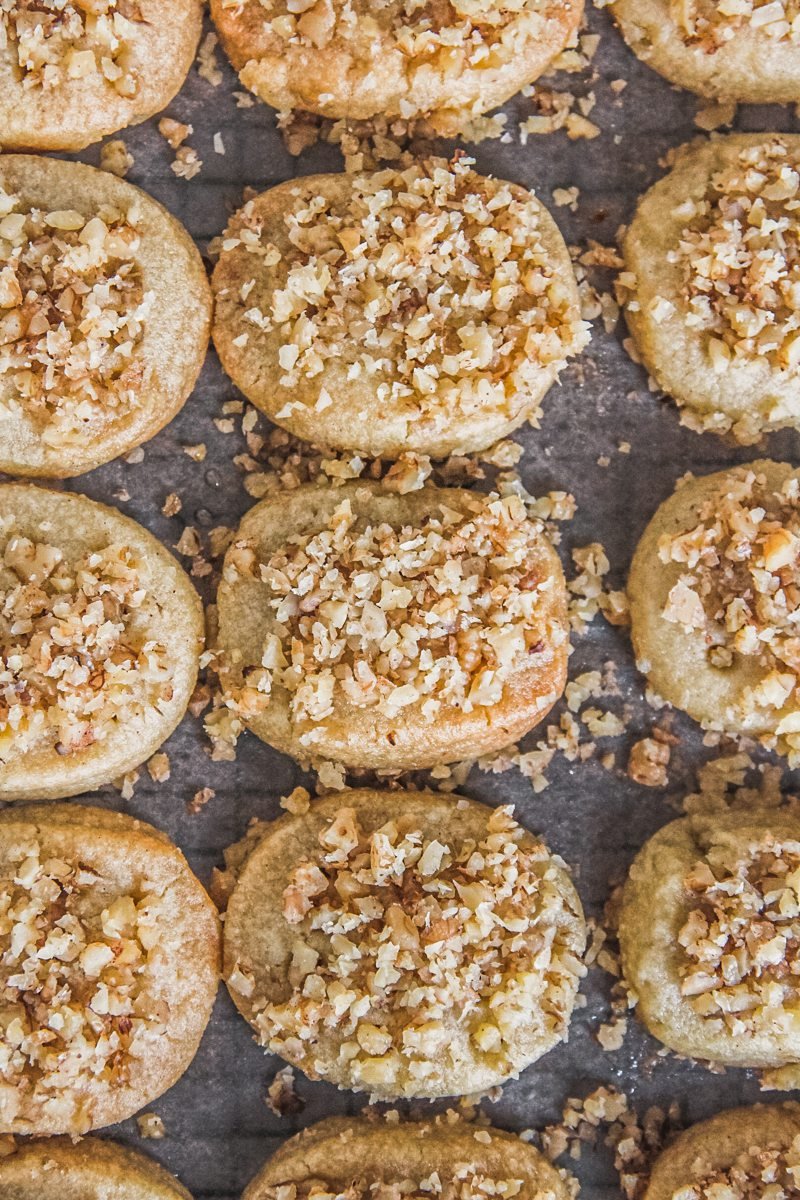
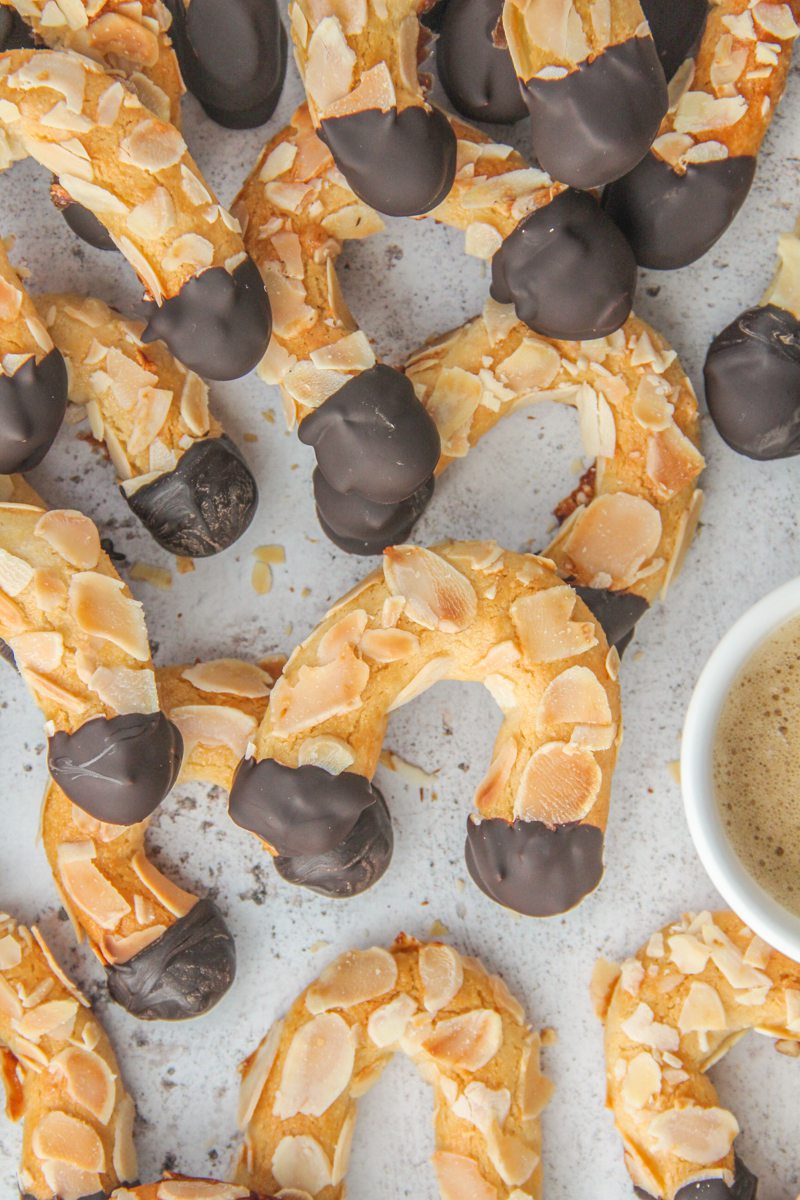
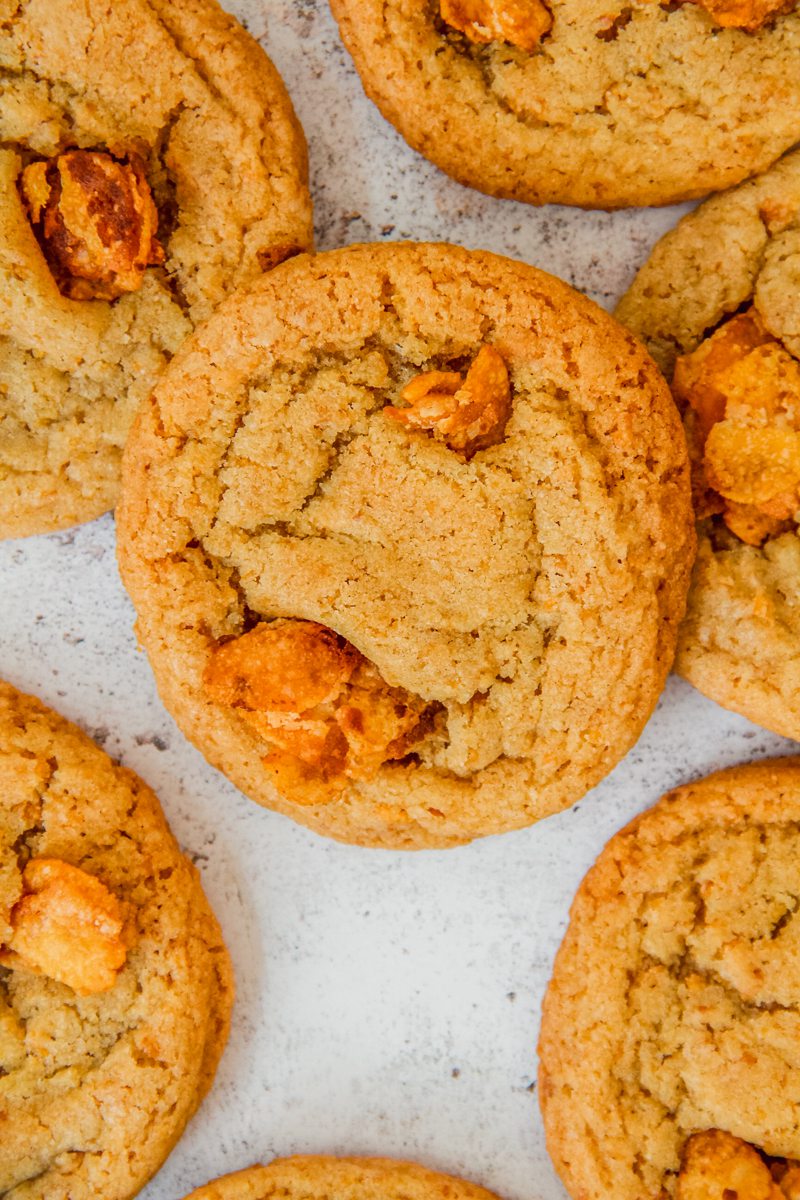
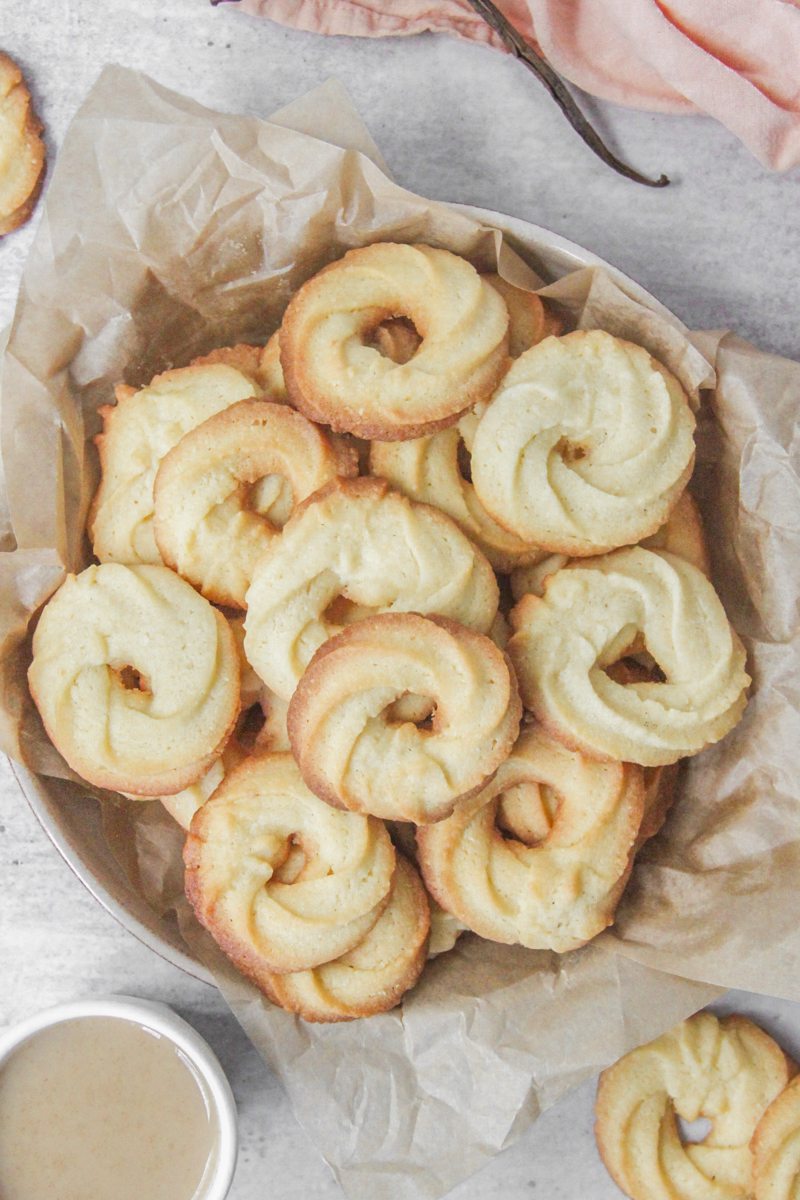
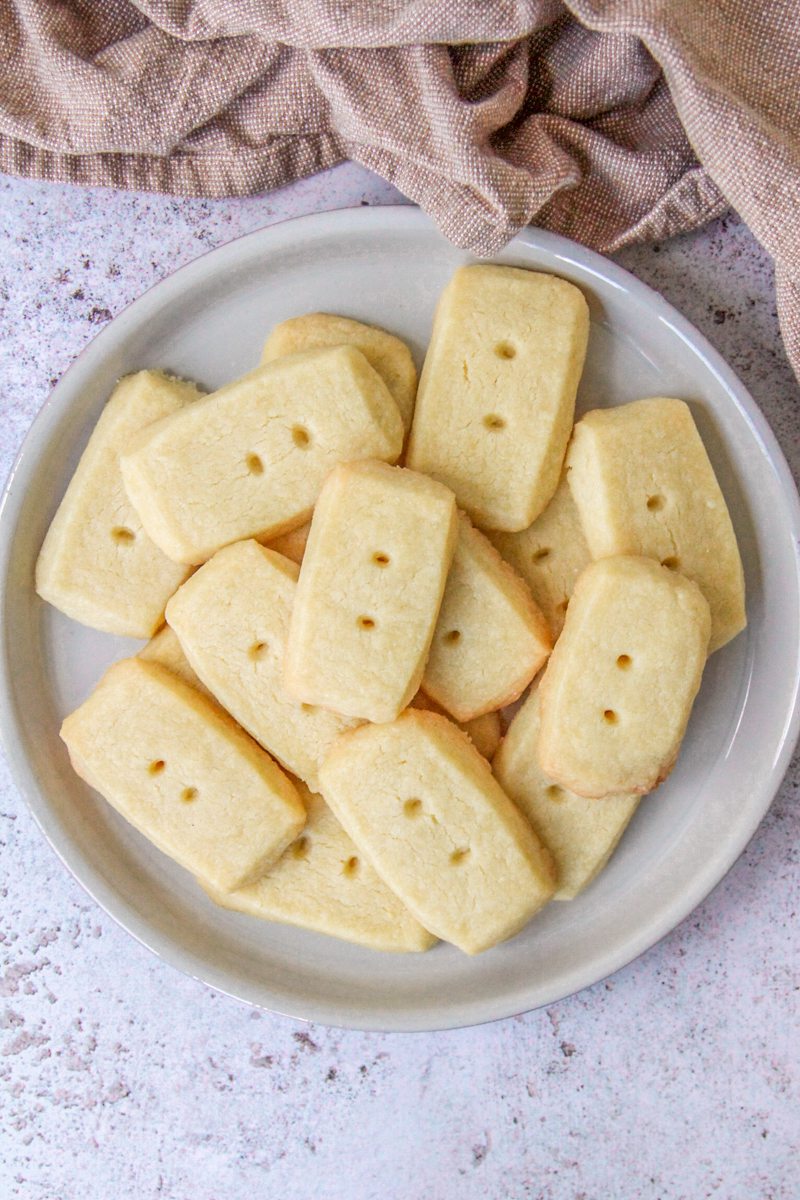
Luna
Made these but did dip into chocolate and they were crispy and fluffy and a great wee gift for a friend who is gluten free. Thanks,
Sylvie Taylor
So glad to hear you enjoyed these Luna!